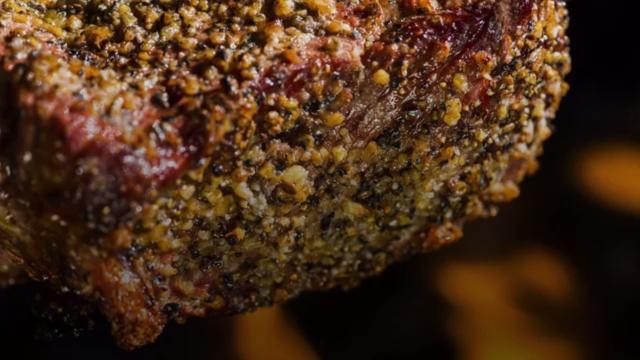The Difference Between Rump Roast and Pot Roast

TABLE OF CONTENTS
On This Page
What Is Rump Roast?
What Is Pot Roast?
How To Cook Rump Roast
How To Cook Pot Roast
Asking the difference between a rump roast and a pot roast is like asking the difference between a ribeye and a steak. There is no difference, but there's also all the difference in the world. "Pot roasts" (and "steaks") are names for preparing meat cuts, while a rump roast (or a ribeye) is a specific cut of meat from a particular part of the animal. If this question of the difference between a rump roast and a pot roast isn't a direct comparison, then why ask it? Because it brings up one essential piece of culinary information—you shouldn't prepare all cuts of meat the same way.
What Is Rump Roast?
To prepare a specific cut of meat, you first need to know the essential elements that separate it. Rump roast is extra lean meat located as a triangular cut in the upper part of a cow's hindquarters near the loin. Since rump roast comes from an area a cow uses regularly, the surrounding muscles add to its tough connective tissue. Less marbling, or fat within the muscle, means slowly cooking this cut to soften the meat.
What Is Pot Roast?
A pot roast is a method of cooking a cut of meat by braising it, browning the meat, and simmering it in its juices or other liquid in a covered pan, oven, or slow cooker. Specific cuts are better than others for pot roast, including chuck, rib, sirloin tip, and rump roasts.
Chuck Roast
Chuck roast is a lean cut of meat found near a cow's muscular shoulder. A cow uses this muscle regularly, making it a tougher cut, but slow cooking helps soften and melt the connective tissues. This method makes chuck roast more flavorful because the marbling helps braise the meat with its slow-roasted juices.
Rib Roast
Rib roast comes from the rib section of a cow. There are a few popular rib roast cuts, including standing, rolled, and rib-eye. The rib-eye roast is the most expensive cut and is flavorful because of its well-marbled, boneless center.
Sirloin Tip Roast
Sirloin tip, or round-tip roast, comes from a cow's hindquarters and is lean, flavorful, and tough. This cut tends to be more budget-friendly, making it a good choice for sliced roast beef sandwiches.
Rump Roast
The rump roast sits at the juncture of the cow's leg quarters and the rest of its body. This meat cut is tough and packed with collagen and dense muscle fibers. It has less fat because the cow constantly uses it to walk and support its weight.

LauriPatterson / Getty Images
How To Cook Rump Roast
Tough cuts of meat like the rump roast require low heat for an extended time (in contrast to the quick-cooking high heat of a ribeye steak). The long cook time allows the tough connective tissue to break down and the firm collagen to liquefy into gelatin, which makes for a juicy and succulent pot roast. If cooked quickly, a rump roast would be as tough as a shoe, but slowly braised as a pot roast, a rump roast melts in your mouth with complex, flavorful juices released by the meat over a long period of cooking.
How To Cook Pot Roast
A pot roast is a meat, typically slowly braised (cooked in a liquid) at a low temperature for an extended time—like in a Crock Pot. This cooking method does something very different to the meat from other ways of cooking that apply high heat for a shorter period. You should use each cooking technique for the cut of meat best suited for its time and heat.
Generally speaking, the muscles a cow uses least often, like the ribeye (located in the upper part of the rib cage), are exceptionally tender cuts of meat as is and should be cooked quickly. These fatty cuts of beef contain very little tough connective tissue because they are not worked frequently by the animal.